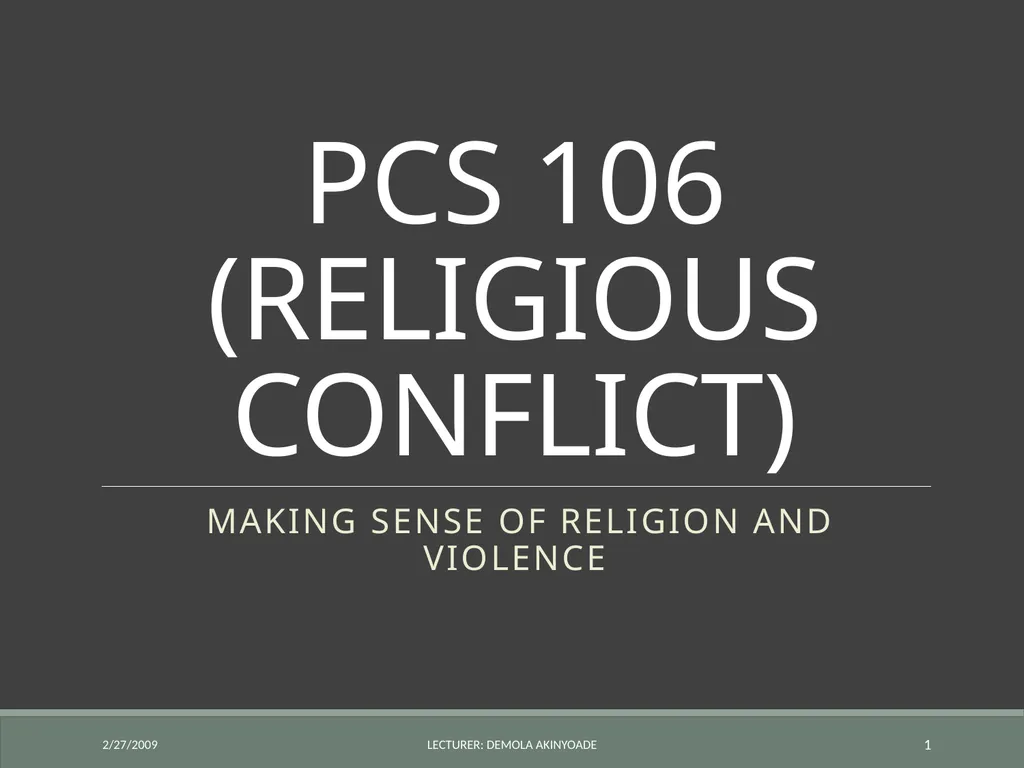
Author : karlyn-bohler | Published Date : 2025-07-18
Description: PCS 106 (RELIGIOUS CONFLICT) Making Sense of Religion and Violence 2272009 Lecturer: Demola Akinyoade 1 Class Overview Class Objective: At the end of todays class students should be able to: Define religion ; Identify the world majorDownload Presentation The PPT/PDF document "" is the property of its rightful owner. Permission is granted to download and print the materials on this website for personal, non-commercial use only, and to display it on your personal computer provided you do not modify the materials and that you retain all copyright notices contained in the materials. By downloading content from our website, you accept the terms of this agreement.
Here is the link to download the presentation.
"PCS 106 (RELIGIOUS CONFLICT) Making Sense of"The content belongs to its owner. You may download and print it for personal use, without modification, and keep all copyright notices. By downloading, you agree to these terms.













